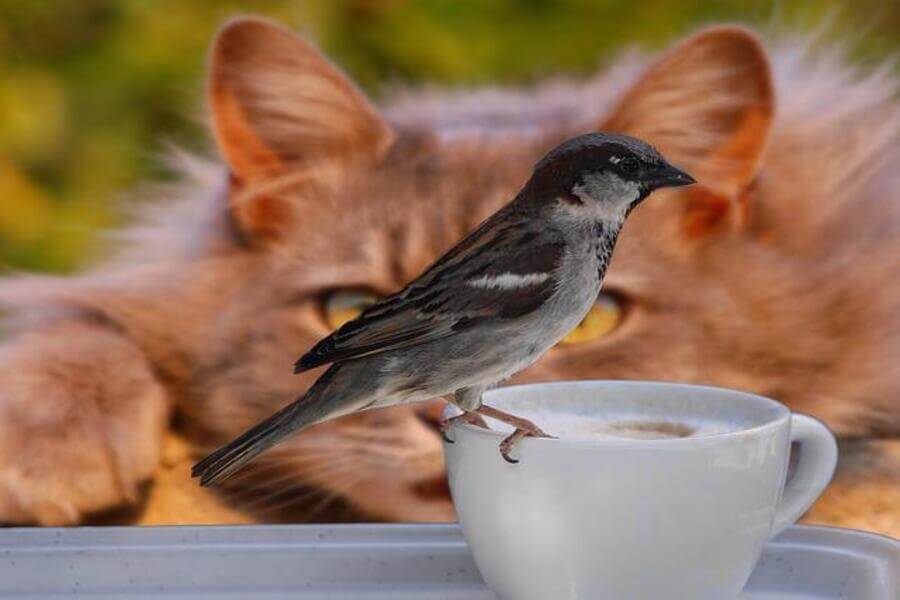Having a garden full of birds may be heaven to many of us. But unfortunately, these charming garden visitors often attract other unwanted animals. There are several bird predators across the UK, and the appearance of flocks of happily tweeting garden birds may draw the attention of any of their dangerous predators. If you’re struggling with bird predators on your property, don’t worry – you don’t have to take all your feeders down just yet! You can do plenty of things to deter bird predators without harming them or the birds that enjoy your garden. So, protect your garden visitors with our tips on removing bird predators once and for all.
Cats
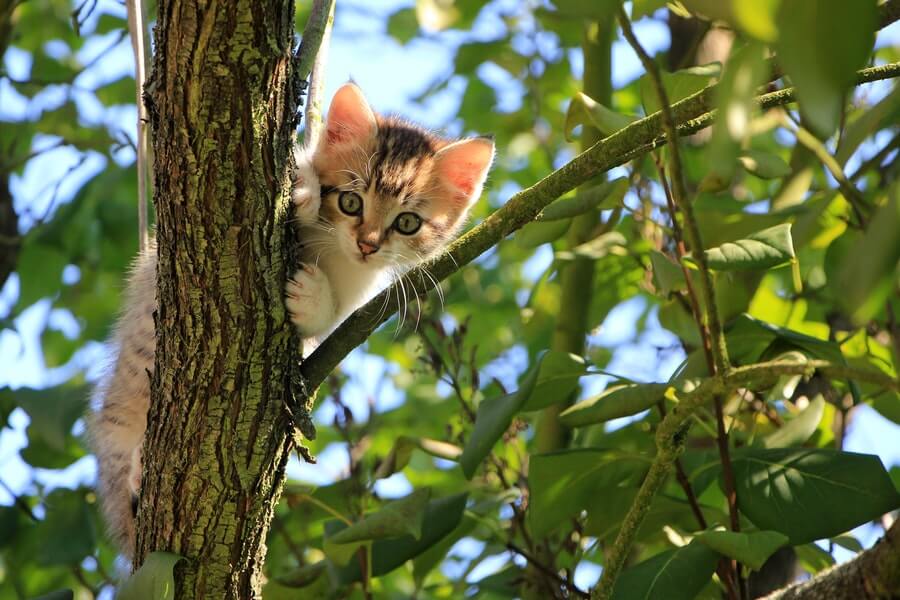
Cats are the most recognised bird predator, responsible for the death of around 27 million birds yearly[i]. Both wild and domestic cats will sniff out your garden if it’s already alive with birds. However, if you’re struggling to attract wild birds, there may already be a cat in your area that birds have detected. Fortunately, since cats are well-known bird predators, there are several proven ways to deter them.
How To Deter Cats
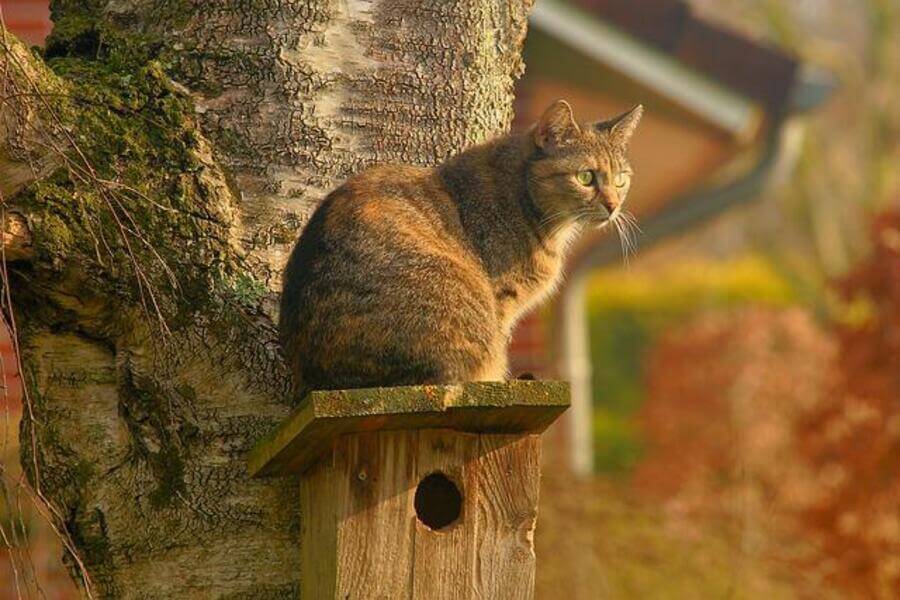
- Talk To The Owner – Before taking extreme methods in your garden, see if you can track down the cat’s owner and have a word. They may be able to help you.
- Use Scent – Cats have a strong sense of smell, and you can use this against them by spreading scents they don’t like around your garden. Smells cats don’t like include lavender, citrus, coffee and human hair.
- Try Motion-Activated Sprinklers – Sprinklers able to detect even the slightest movement are effective in keeping away many predators. Install motion detector sprinklers around flowerbeds, lawns and entryways to catch visiting cats.
Foxes
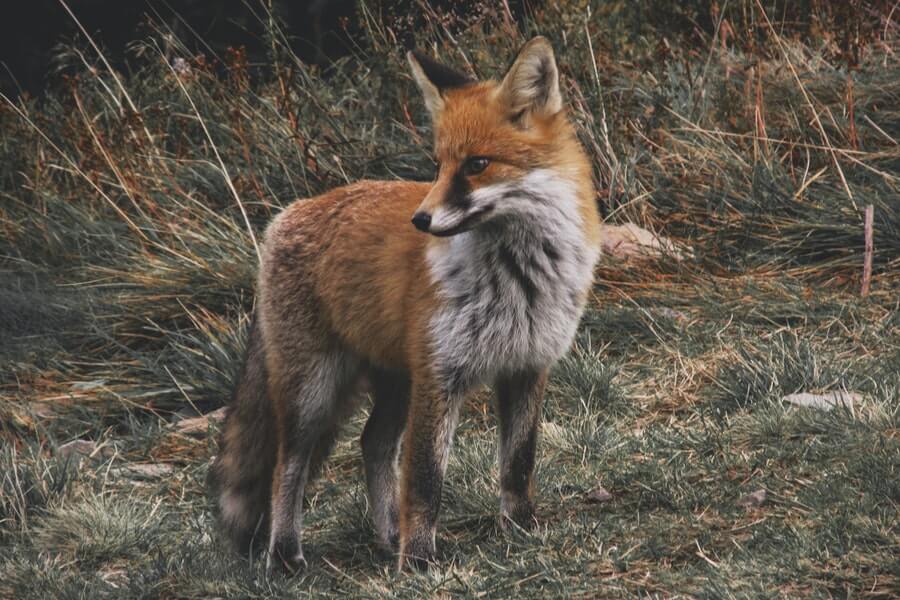
Foxes are expert hunters, and their diverse diet includes several species of birds. As omnivores, they will also eat rabbits, rodents, frogs, worms and bird eggs. Foxes have incredible hearing, plus the ability to jump up to 3 feet and climb almost double that[ii], so their night hunts are often successful. Also, foxes will weasel their way onto bird tables to snack on peanuts, seeds and other foods left out for birds.
How To Deter Foxes
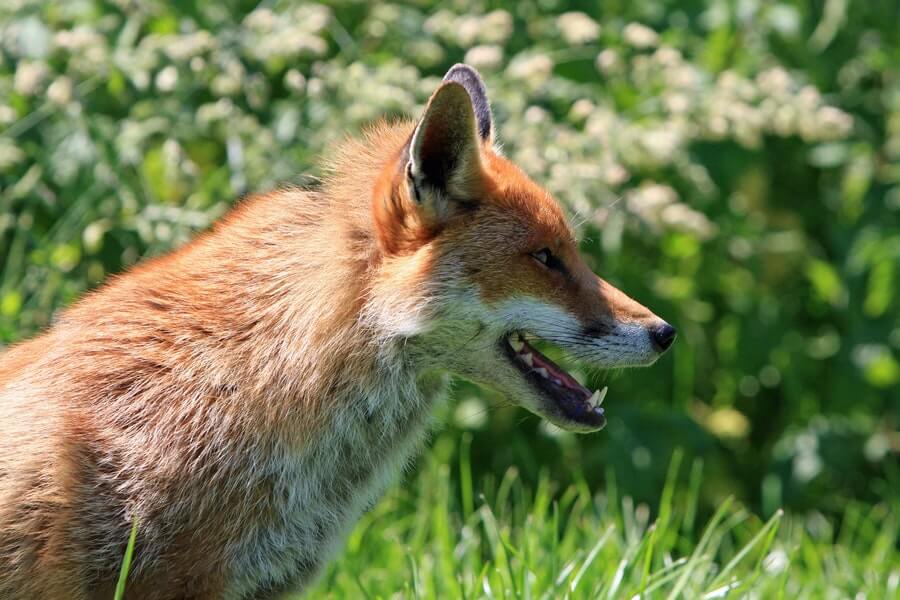
- Clear Your Garden – Clear up any overgrown sections of your garden and keep the grass cut low. This way, foxes won’t have sheltered spaces to hide and sneak up on their prey.
- Don’t Leave Food Outside – If you feed your pets outdoors, bring their bowl in as soon as they are done. Foxes will happily eat leftover dog or cat food. Also, if you have fruit trees, clear up fallen fruit regularly.
- Professional Fox Repellents – There are plenty of professional fox repellents on the market that will deter foxes without harming your garden or the wildlife in it. Often, these repellents mimic the smell of fox urine, and foxes won’t invade each other’s territory for fear of a fight.
Squirrels
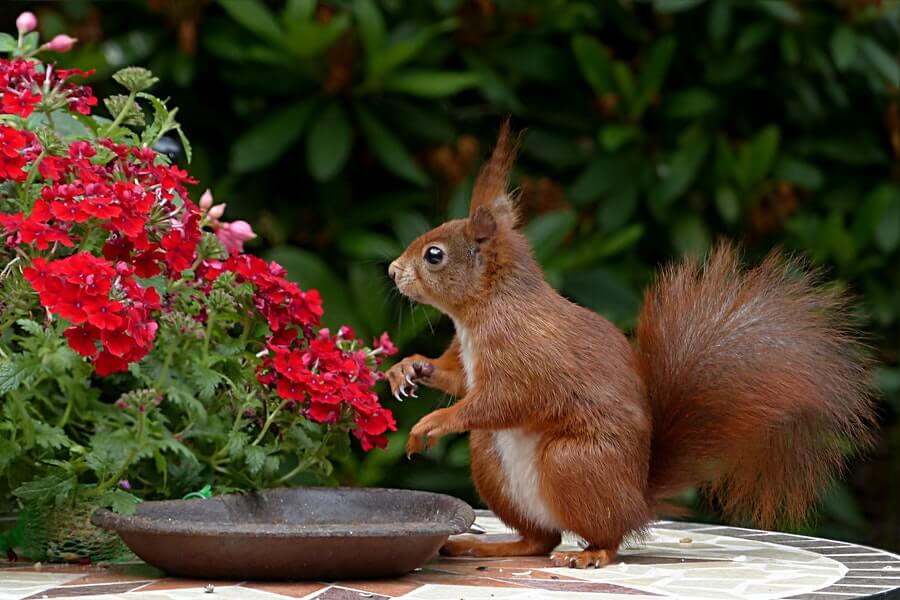
Feeding wild birds is a fantastic pastime, but squirrels are well-known invaders of bird feeders and can jump as high as five feet from the ground to reach a hanging feeder[iii]. However, red and grey squirrels will also turn on birds if necessary, particularly injured birds and juveniles. Occasionally, squirrels will also attack and kill adult birds. However, many people condemn squirrels, particularly grey squirrels, as nest predators since they will strike a bird’s nest to get to the eggs.
How To Deter Squirrels
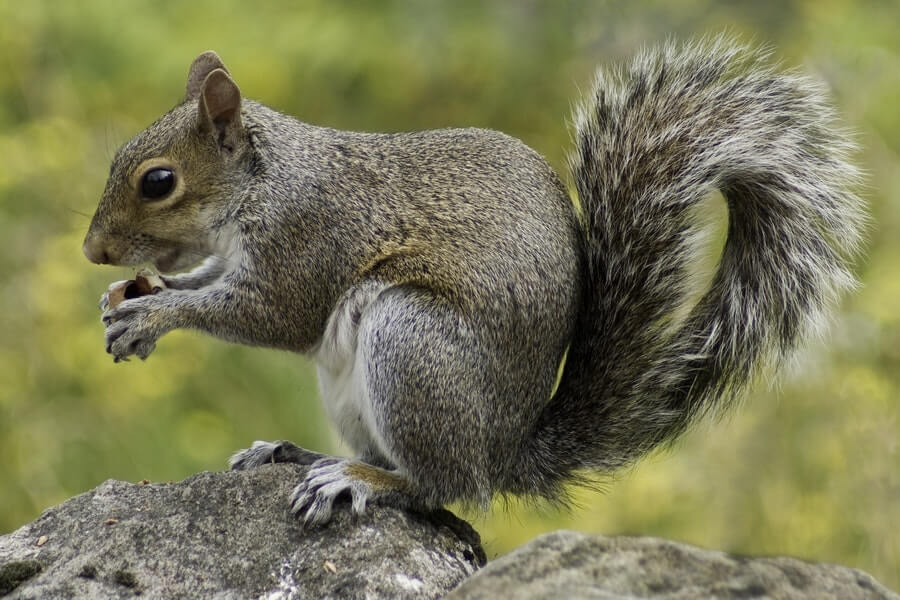
- Install Squirrel-Proof Feeders – Invest in a squirrel-proof feeder to keep your wild bird seed mix safe from prying paws.
- Get A Dog – Dogs will chase squirrels, driving them away quickly. Plus, you can mulch your garden with your dog’s hair to keep squirrels away.
- Add Cayenne Pepper To Bird Feeders – Birds can’t taste cayenne pepper, but squirrels detest it. Cover your feeder and food with cayenne pepper to keep squirrels away.
Snakes
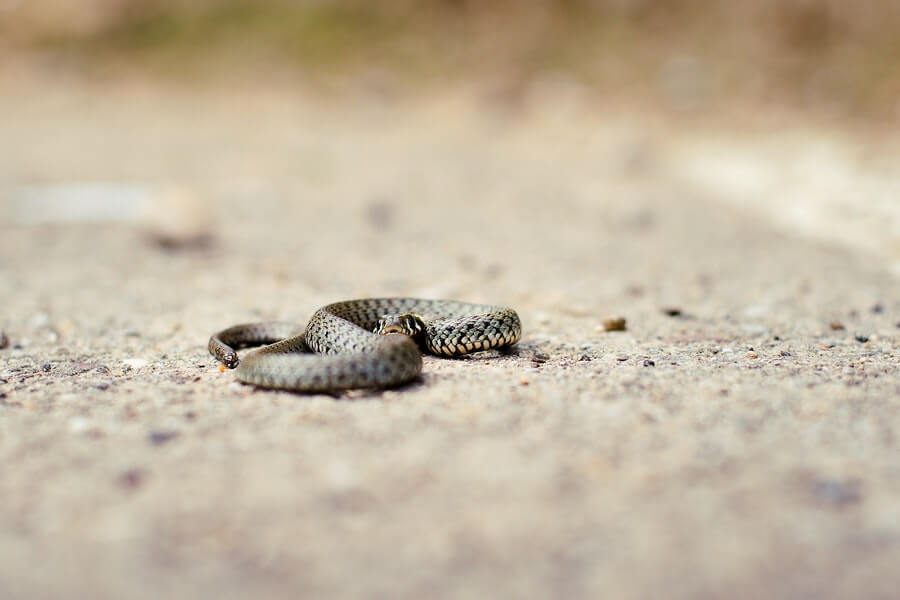
Snakes may not be one of the most consistent bird predators in the UK, but they will willingly hunt birds. The UK is only home to three species of snakes[iv], and their usual diet comprises small mammals and amphibians. However, all three of them will take birds if necessary. The adder, in particular, will snatch ground-nesting birds, like the meadow pipit or skylark. On some occasions, snakes may even take the eggs from a nest.
How To Deter Snakes
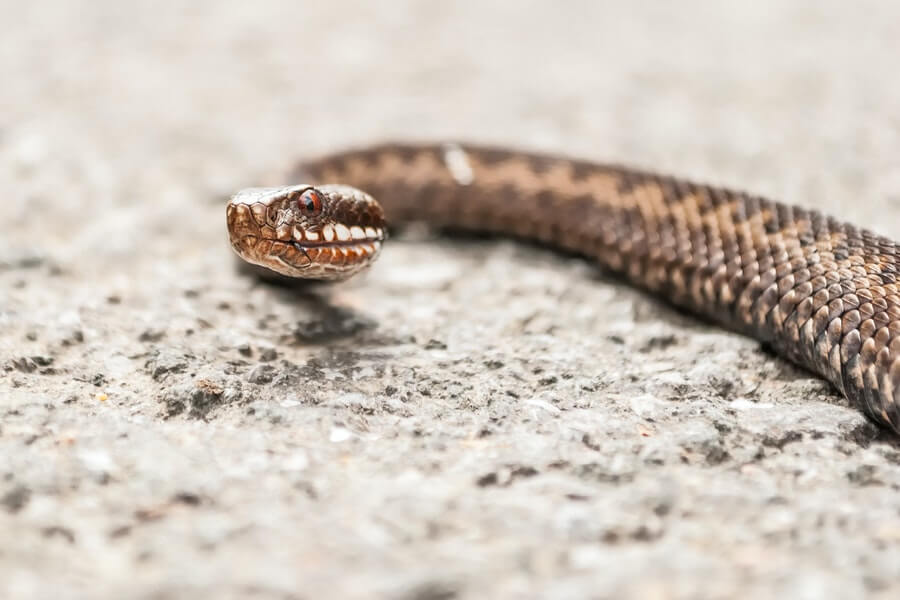
- Clear Up Your Garden – Keeping your grass short, clearing low-growing plants and removing debris and log piles will remove any potential snake hiding spots.
- Fill Any Holes – Snakes will hide in any available holes in your garden. So, search under outhouses, patios, walls and fences for holes big enough for a snake and fill them in.
- Protect Ponds – A garden pond will draw snakes quickly since it will likely be a favourite spot for frogs and other amphibians. Fit a close-fitting fence around your pond to stop snakes from attacking visiting birds or frogs.
Weasels
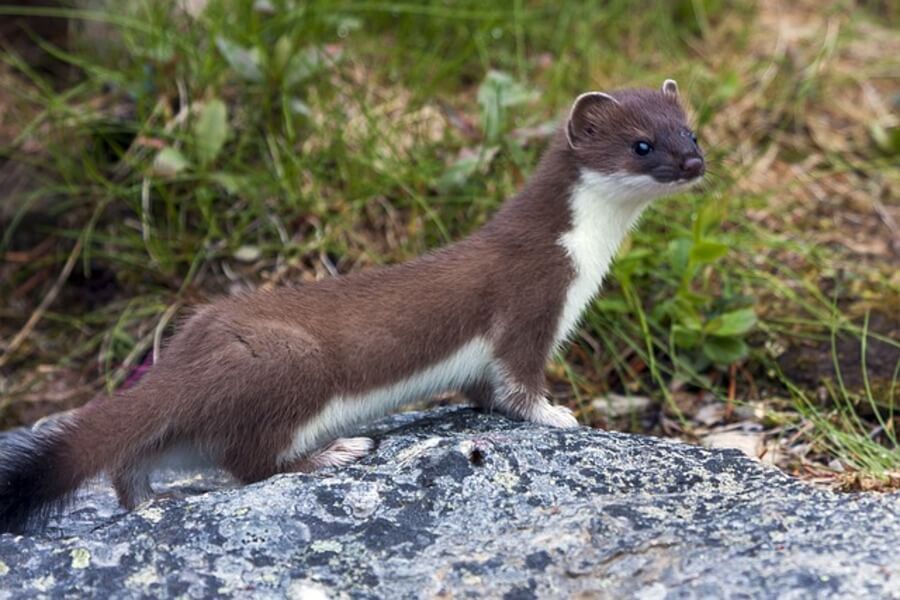
Don’t be fooled by their small size – weasels eat about one-third of their body weight daily [v], making them one of the major bird predators. Their diet is varied, although they primarily eat voles and mice since their size allows them to follow the rodents underground. However, weasels will readily take adult birds, including chickens, and their eggs. They are excellent climbers and will climb up to a bird’s nest in search of eggs and birds.
Unlike several other animals and birds, it is legal to kill weasels as long as you meet certain conditions. We would never condone killing an innocent animal, so we encourage you to persevere with natural deterrents as much as possible.
How To Deter Weasels
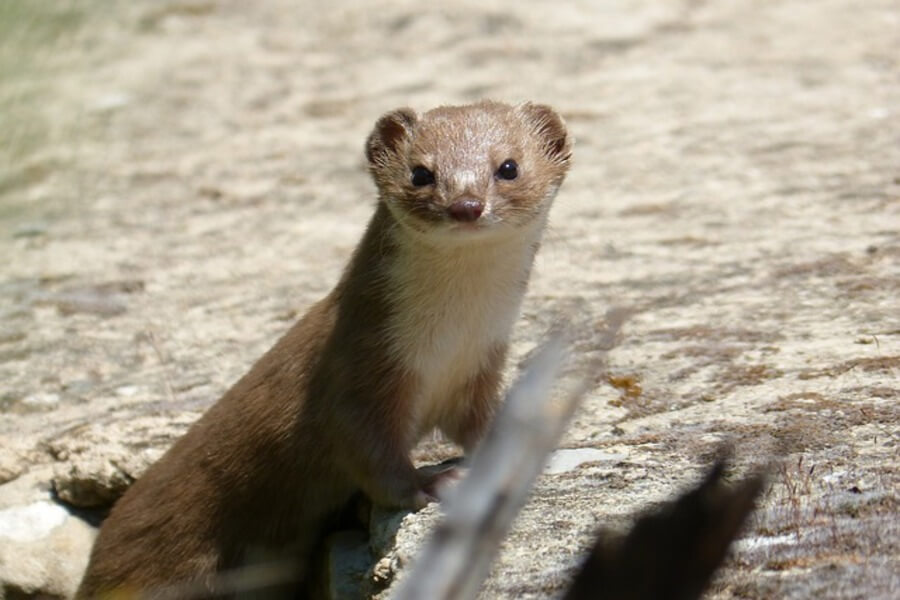
- Attack Their Sense of Smell – Weasels have a powerful sense of smell and hate certain scents. Smells weasels hate include peppermint, chillies, citronella, eucalyptus and tea tree[vi]. Deter weasels by spreading some of them around your garden.
- Block Off Entrance Points – Stop weasels from entering your garden by blocking any potential entryways. Fill up any holes or cracks in your fences, and potentially consider adding netting to your hedges or top of walls to stop weasels jumping over.
- Contain Any Pets – If you keep pets, such as rabbits, gerbils, or livestock in your garden, ensure their pens are secure. If weasels can’t get to food easily, they’ll give up quickly, so keep your pets and livestock safe.
Birds of Prey
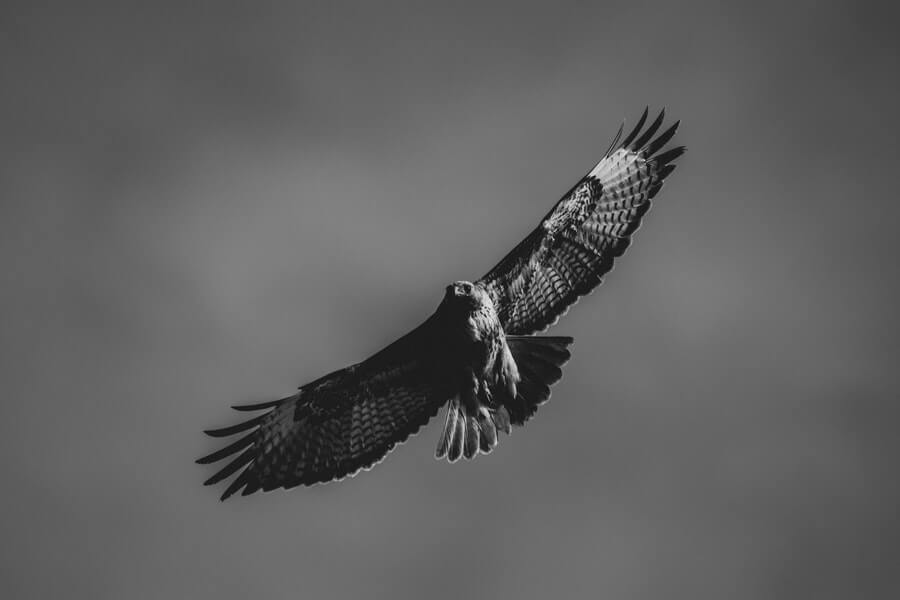
There are 15 species of raptors, or birds of prey, in the UK. These large birds may look incredible flying over your garden, but they aren’t shy in attacking wild birds. Birds of prey often favour smaller birds, such as finches and sparrows, although the size of the bird doesn’t usually matter. For example, peregrine falcons will eat even larger birds. However, raptors usually feed on older, weaker birds, which ornithologists believe actually improves the power of garden bird species.
How To Deter Birds of Prey
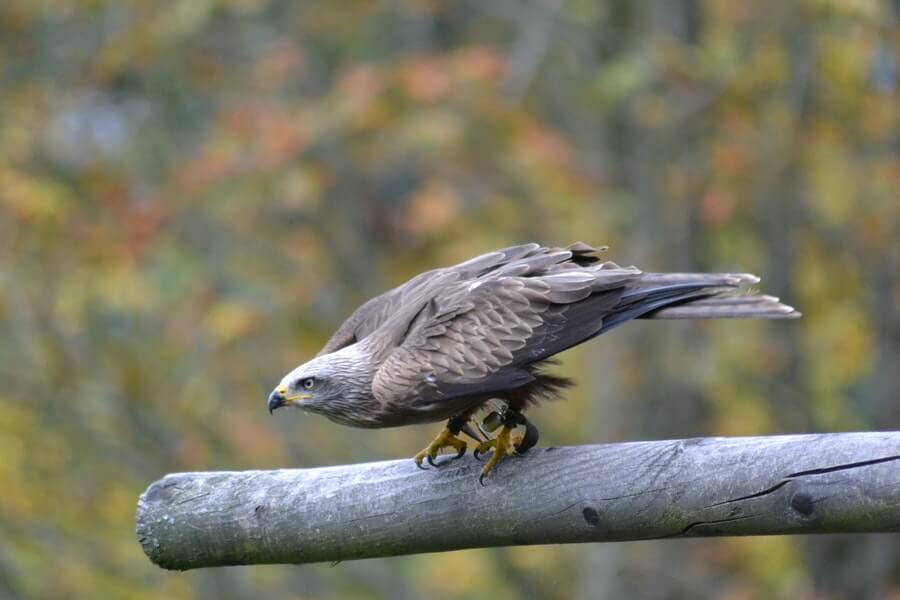
- Take Your Feeders Down – Taking your feeders down for a week or two will remove the raptor’s food source and encourage them to find somewhere new.
- Cover Your Feeders – If you don’t want to take your feeders down completely, try sheltering them. Place your feeder under an overhanging branch and hang strings of beads or something similar to slow-approaching raptors.
- Scare Them With Light – Hanging old CDs, or half-full bottles of water will create a reflection that should scare off any birds of prey.
Bats
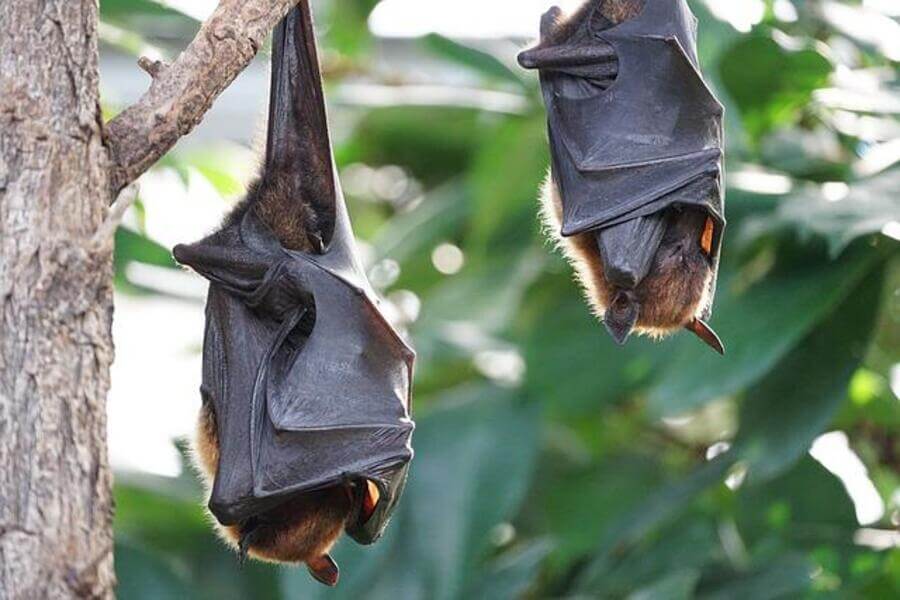
One of the bird predators that you probably haven’t even thought about is the bat – the noctule bat, to be specific. Experts only recently discovered that this carnivorous bat is able to take passerines, particularly songbirds, during flight. Although the diet of many bats consists primarily of night-flying insects, we know that a handful of them eat birds. Of the 17 species of bats in the UK[vii], fortunately, the noctule bat is the only one to eat birds.
Oddly enough, several birds eat bats. Owls and hawks will grab bats from the sky, particularly around the entrance to their roosts. However, smaller garden birds may be at risk if you have a noctule bat hanging around.
How To Deter Bats
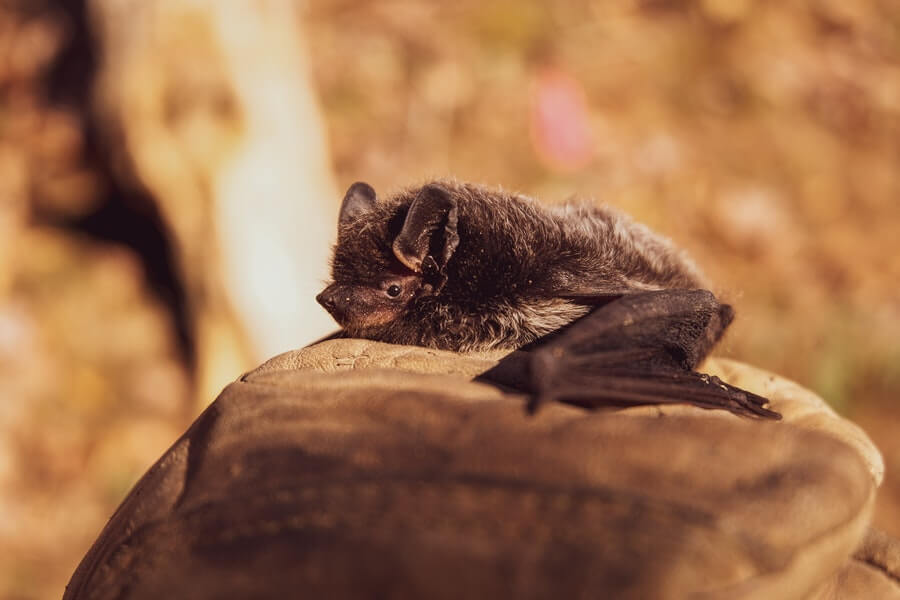
- Remove Alternative Food Sources – If your garden is rich with other sources of a noctule bat’s favourite food, they’re likely to stick around and catch any passing passerine birds. Noctule bats will also eat insects, particularly moths, midges and other flying bugs. You can try insecticides to remove these insects from your garden and encourage bats to hunt elsewhere.
- Try Sound Deterrents – Bats rely on their strong sense of hearing, or echolocation, to catch prey. Consider installing ultrasonic sound deterrents that emit an assaulting sound only bats can hear.
- Use Repellent Sprays – Bat repellent sprays are perfect for deterring bats without harming them, other wildlife or your garden. Spray a natural bat repellent spray around popular areas of your garden and home to see a reduction in bats.
Deterring Bird Predators
Dealing with bird predators in your garden may be stressful, particularly if you find perished birds on your property. However, if you take our advice, we’re confident that you will be free from any unwanted bird predators in no time.
Have you had any experience with some of these bird predators? Let us know how you dealt with them.
Sources
[i] https://www.rspb.org.uk/birds-and-wildlife/advice/gardening-for-wildlife/animal-deterrents/cats-and-garden-birds/are-cats-causing-bird-declines/
[ii] https://misfitanimals.com/foxes/how-high-can-a-fox-jump/
[iii] https://chowhoundpet.com/how-to-keep-squirrels-out-of-your-bird-feeders/
[iv] https://www.wildlifetrusts.org/how-identify/identify-snakes
[v] https://www.woodlandtrust.org.uk/trees-woods-and-wildlife/animals/mammals/weasel/
[vi] https://pestpointers.com/9-scents-that-weasels-hate-and-how-to-use-them/
[vii] https://www.rhs.org.uk/wildlife/bats-in-your-garden
Gemma Sharp is the resident writer for Love Garden Birds, a supplier of premium bird food and accessories. She has had a genuine love for our feathered friends from a young age, and has dedicated a lot of her time to learning all there is to know about them. If you’re struggling to pick the right bird feed for your garden, need help identifying a type of wild bird, or can’t decide where to put a nesting box, Gemma is the person to go to! She is passionate about sharing her years of learnt knowledge with the public. In her free time, she can be found feeding birds at home with her three young boys.



